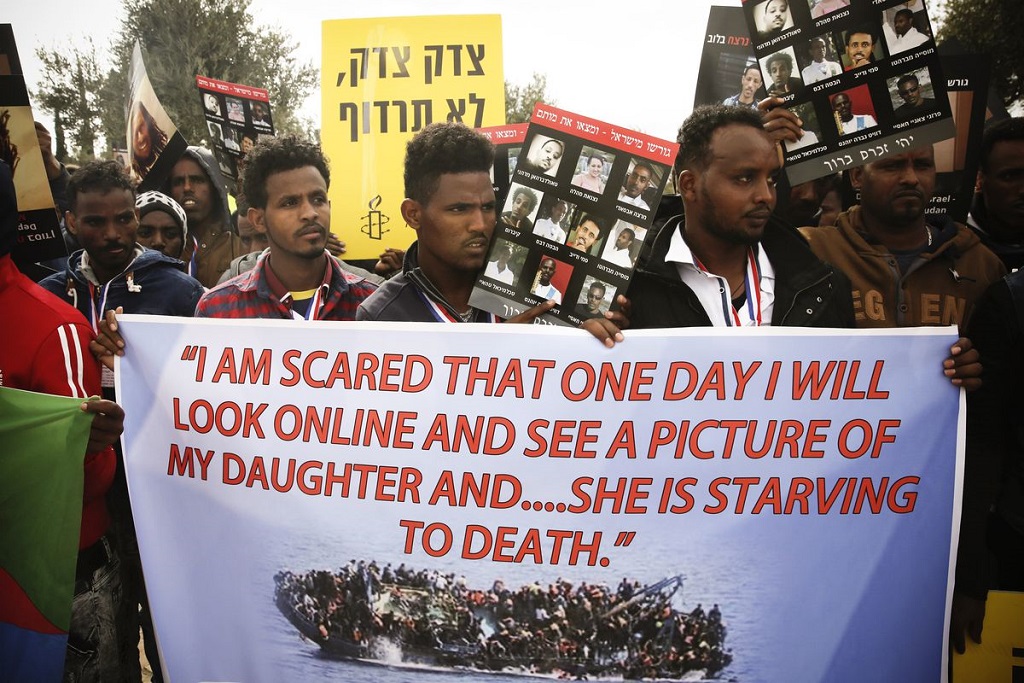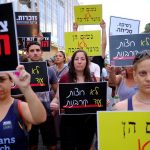For eight months the small community of African Hebrews in Israel has been engaged in a bureaucratic battle with the Ministries of Interior and Immigration to prevent the deportation of 7% of their community members. One-hundred and thirty-five people, 70% of whom are minors who were born in Israel, many of whom have relatives that have served or currently serve in the Israeli military, 51 of whom are facing the threat of immediate expulsion from their homes, and all of whom are lacking official status in Israel. After consistent appeals on local media outlets, endless hours of lobbying politicians in the Knesset, and direct negotiations with the Ministry of Interior itself, Minister Ayelet Shaked has made it clear that “there is no room to change the presiding policy that has been in place thus far.”
What policy, you ask? One that unapologetically discriminates against the African Hebrew community on the basis that its members constitute a foreign presence in the State of Israel. To quote attorney Yona Sherki from the Israeli Immigration Policy Center, “(this community, like minority communities in Europe) presents a problem to the social fabric of the society.” Setting aside the palpable animosity expressed by these words, it is indisputable that this characterization of the African Hebrews as an adverse, outside, or foreign presence is not based on the facts, or on this community’s contribution to society.
In the 53 years since the first African Hebrews were welcomed with open arms and granted citizenship under the Law of Return (only for it to be retroactively stripped in 1970), the “threat” posed by this community to Israeli society has manifested in the following manner: the highest rate of enlistment in the Israeli military, multiple representatives sent to represent Israeli society in the Eurovision competition, and consistent efforts to confront anti-Israel propaganda on the international stage by its community members.
Yet, despite this record of service and contribution, the African Hebrew community has been targeted with repeated bouts of deportation (1973, 1986) because, as far as the government is concerned, the community isn’t Jewish. The fact that this community immigrated to Israel explicitly because of their identification with the Hebrew nation, from which the Jewish people hail, should have been a source of inspiration for negotiations and for the parties to find a meaningful solution. Instead, it has served as the source of animus for rejecting the African Hebrews. An animus that is most often justified by conflating the African Hebrew community with extremist Hebrew Israelite groups in the US. In virtually every way imaginable, the African Hebrew community has not only distinguished itself ideologically from the aforementioned groups, but has demonstrated their aspiration to live as an integral part of Israeli Jewish society. For all of these reasons, the unreasonable approach to their unique circumstances is particularly discriminatory in light of the broader picture of Israeli demographics.
Notably, not being considered Jewish hasn’t prevented these same ministries from providing for the immigration and accommodation of more than 400,000 non-Jews from the former USSR. It also hasn’t prevented them from providing official status to hundreds of children of migrant workers from the Philippines. To be clear, this is not a comment on the propriety of the accommodations made to these other two communities, it is just a comment on the obvious and discriminatory different standard, discrimination that is undeniable when you look at the circumstances behind the flexibility provided to the first generation of Phillipino children born in Israel or the pathway to citizenship enshrined in law for those who explicitly do not identify as Jewish/Hebrew from the former Soviet Union. Particularly, when those circumstances are compared to the current attempt to deport multiple generations of African Hebrews who lack status only because of bureaucratic negligence.










